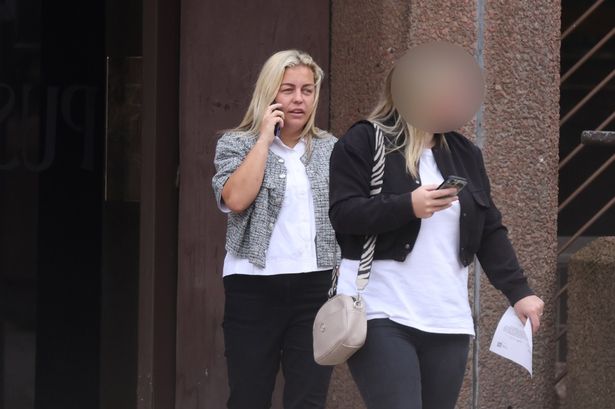Morgan Quigley “felt she couldn’t say no” to drug-dealing manager and predator Lindy Leah
17:59, 16 Sep 2025Updated 18:00, 16 Sep 2025
 Morgan Quigley outside Liverpool crown court(Image: Liverpool Echo)
Morgan Quigley outside Liverpool crown court(Image: Liverpool Echo)
A care worker at a children’s home where predator Lindy Leah groomed a teenage boy was involved in the supply of ketamine. Morgan Quigley, 29, was in cahoots with convicted sex offender Leah, who was her superior at the St Helens home where they both worked.
The two women were both found to be involved in the supply of class B drugs after Leah’s phone was seized by police and incriminating text messages were discovered. At around 2.45pm on March 13 last year, Leah messaged Quigley to ask: “Why haven’t you sold my ket?”
Quigley replied: “Ha ha you know what, I forgot about that.” Leah then messaged: “Lazy you.”
Leah, of Capesthorne Road in Orford, Warrington, appeared at Liverpool Crown Court yesterday, September 15, after being found guilty of being a person in a position of trust causing or inciting a child to engage in sexual activity. She also pleaded guilty to two counts of being concerned in the supply of class B drugs (ketamine and cannabis resin).
The 44-year-old mum was accused of preying on a teenage boy in her care while wearing inappropriate and revealing outfits in his presence. A series of WhatsApp messages, meanwhile, showed her apparently asking him “for a love bite” and encouraging him to go missing so they could enjoy a drug-fuelled “night away”.
Quigley, of Cooperage Close, Brunswick, appeared in court today, September 16. She pleaded guilty to being concerned in the supply of class B drugs (ketamine).
Prosecutor Graham Pickavance said: “On March 13 last year, she was concerned in the supply of class B ketamine. The background is she was working at the same care home as Lindy Leah who was dealt with yesterday.
“Evidence was given (that) she had actually come to the care home under the influence of drugs and had to be sent home on one occasion.”
Further text messages sent between the two women showed Leah suggesting they go into business together with Quigley responding: “We would make a killing.”
Peter Killen, defending, said Quigley had played a lesser role in the offending. He said: “The lesser role properly reflects not only the actions of Quigley but also her position as an employee of the co-defendant (Leah) who was her supervisor and manager.
“My client has reflected she fell into a pattern of behaviour she is remorseful about now. She felt she couldn’t say no. She knows that was an unhealthy relationship for her. It’s not without significance that the pre-sentence report assess her as a vulnerable adult.”
He said Quigley suffered from anxiety as a result of bullying at school and this had worsened due to the long delay in bringing the case to court. He said: “She’s suitable for a mental health treatment requirement and that would be very much to her advantage and reduce her likelihood of ever coming before these courts again. She’s described as a low risk of reoffending.”
He added: “This misconduct led to her dismissal from her employment, led to the loss of her career as a carer which she was hoping to follow as a team leader which was a promotion that had been offered to her by the co-defendant (Leah).
“She was hoping to be able to travel to Australia and she knows that’s now not going to happen. So she has lost a career in the UK and her ambitions to travel and work elsewhere.
“My client is also the main carer for her grandfather. He’s in relatively poor health, in his 80s. She is his registered carer and obviously there’s a concern that there’s effectively no one else to assist him if she were incarcerated immediately.”
Sentencing, judge Brian Cummings said: “This is not a case for custody. There are no aggravating factors. There are a number of important mitigating factors. You’re 29 and you have no previous convictions.
“I accept you have shown remorse, I accept the pre-sentence report regarding your mental health, and the effect of the delay in this case on your mental health. I accept that, irrespective of anything the court does, there have already been adverse consequences for you.”
He sentenced Quigley to a 12 month community order, 20 rehabilitation days, and a 12 month mental health treatment requirement.
